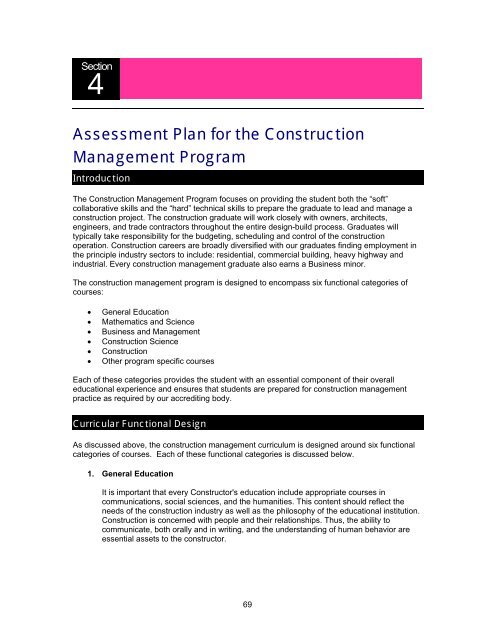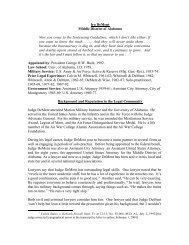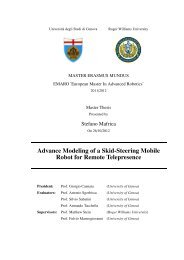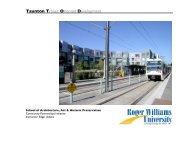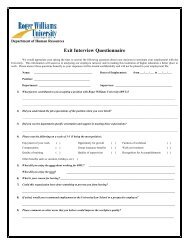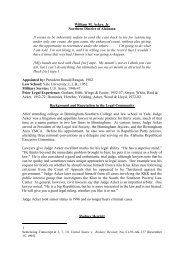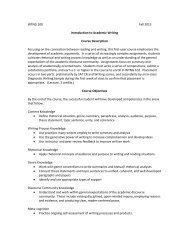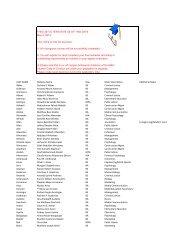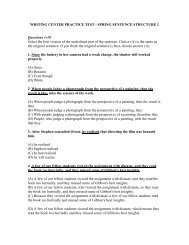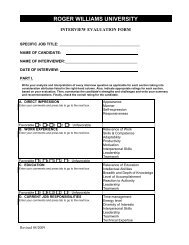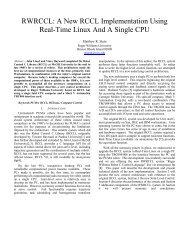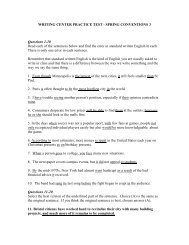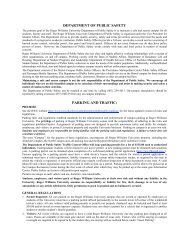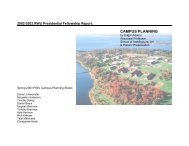SECCM Assessment Plan - Roger Williams University
SECCM Assessment Plan - Roger Williams University
SECCM Assessment Plan - Roger Williams University
You also want an ePaper? Increase the reach of your titles
YUMPU automatically turns print PDFs into web optimized ePapers that Google loves.
Section<br />
4<br />
<strong>Assessment</strong> <strong>Plan</strong> for the Construction<br />
Management Program<br />
Introduction<br />
The Construction Management Program focuses on providing the student both the “soft”<br />
collaborative skills and the “hard” technical skills to prepare the graduate to lead and manage a<br />
construction project. The construction graduate will work closely with owners, architects,<br />
engineers, and trade contractors throughout the entire design-build process. Graduates will<br />
typically take responsibility for the budgeting, scheduling and control of the construction<br />
operation. Construction careers are broadly diversified with our graduates finding employment in<br />
the principle industry sectors to include: residential, commercial building, heavy highway and<br />
industrial. Every construction management graduate also earns a Business minor.<br />
The construction management program is designed to encompass six functional categories of<br />
courses:<br />
• General Education<br />
• Mathematics and Science<br />
• Business and Management<br />
• Construction Science<br />
• Construction<br />
• Other program specific courses<br />
Each of these categories provides the student with an essential component of their overall<br />
educational experience and ensures that students are prepared for construction management<br />
practice as required by our accrediting body.<br />
Curricular Functional Design<br />
As discussed above, the construction management curriculum is designed around six functional<br />
categories of courses. Each of these functional categories is discussed below.<br />
1. General Education<br />
It is important that every Constructor's education include appropriate courses in<br />
communications, social sciences, and the humanities. This content should reflect the<br />
needs of the construction industry as well as the philosophy of the educational institution.<br />
Construction is concerned with people and their relationships. Thus, the ability to<br />
communicate, both orally and in writing, and the understanding of human behavior are<br />
essential assets to the constructor.<br />
69


